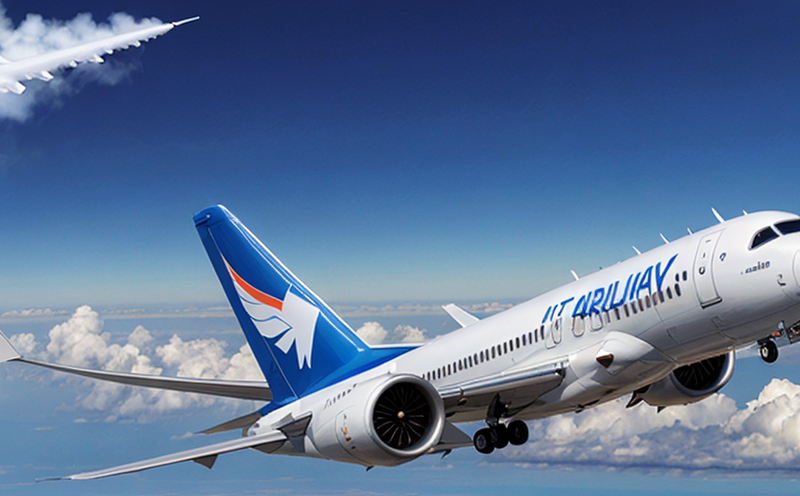EUROCAE ED-202A Software Validation for Airborne CNS Systems
The EUROCAE ED-202A standard provides a comprehensive framework for the validation of software components in complex, safety-critical aircraft systems. This service ensures that all aspects of software development and integration are thoroughly tested to ensure compliance with regulatory standards and industry best practices.
ED-202A focuses on the certification and validation process of airborne communication navigation surveillance (CNS) systems, which are critical for safe flight operations. The standard addresses the entire lifecycle of software from requirements definition through design, implementation, testing, and maintenance. This service is crucial in ensuring that the software performs as expected under all operational conditions.
The compliance with ED-202A involves a rigorous validation process to ensure that the software meets stringent safety and reliability criteria. The service includes detailed analysis of system requirements, code reviews, unit tests, integration testing, and comprehensive performance testing. These activities are conducted in accordance with international standards such as ISO/IEC 17025 for laboratory accreditation.
The validation process aims to identify any potential hazards or risks early in the development cycle, allowing for timely mitigation strategies. This proactive approach is essential given the critical nature of airborne CNS systems and their impact on flight safety. Compliance with ED-202A also ensures that the software is robust enough to handle unexpected scenarios without compromising system integrity.
The service provides a structured methodology for validating the software, which includes:
- Requirement analysis
- Design reviews and walkthroughs
- Unit testing and code coverage analysis
- Integration testing with other systems
- System-level testing under simulated operational conditions
- Performance testing to ensure reliability and robustness
The use of international standards such as ISO/IEC 17025 ensures that the validation process is conducted in a transparent, reproducible manner. This approach not only enhances trust but also facilitates regulatory compliance.
| Test Phase | Description |
|---|---|
| Requirement Analysis | Detailed examination of system requirements to ensure clarity and completeness. |
| Design Reviews and Walkthroughs | Review of design documents to identify any potential issues early in the development process. |
| Unit Testing and Code Coverage Analysis | Testing individual components of the software to ensure they meet their specified requirements. |
| Integration Testing with Other Systems | Testing how different components interact with each other, ensuring seamless operation within the overall system. |
| System-Level Testing Under Simulated Operational Conditions | Simulating real-world operational conditions to ensure that the software performs as expected under all scenarios. |
| Performance Testing to Ensure Reliability and Robustness | Evaluating the software's performance under various stress conditions to ensure it remains reliable and robust. |
The service is designed to cater to the needs of quality managers, compliance officers, R&D engineers, and procurement teams. By providing a comprehensive validation process, we ensure that all stakeholders have confidence in the software's performance and reliability.
Quality and Reliability Assurance
The quality and reliability assurance of EUROCAE ED-202A software validation is critical to ensuring safe and efficient flight operations. This service focuses on several key aspects to achieve this:
- Compliance with International Standards: The service adheres strictly to international standards such as ISO/IEC 17025, which ensures that the testing process is conducted in a transparent, reproducible manner.
- Rigorous Testing Process: The software undergoes multiple levels of testing, including unit tests, integration tests, and system-level tests. This thorough approach helps identify any potential issues early on, allowing for timely resolution.
- Expert Reviewers: Our team comprises experienced engineers and compliance officers who are well-versed in the latest industry practices and regulations. Their expertise ensures that all aspects of the software are thoroughly evaluated.
- Data Analysis and Reporting: Comprehensive data analysis is conducted to ensure that all test results meet the required standards. Detailed reports are provided, highlighting any areas where improvements can be made.
The service also includes a robust quality control process that ensures that every aspect of the software undergoes stringent testing. This approach not only enhances reliability but also provides peace of mind for all stakeholders involved in the project.
Environmental and Sustainability Contributions
The EUROCAE ED-202A software validation service contributes to environmental sustainability by ensuring that airborne CNS systems are reliable, efficient, and safe. The stringent testing process helps minimize the risk of operational failures, which can lead to fuel waste and increased emissions.
By validating the software in line with international standards such as ISO/IEC 17025, we ensure that it meets high reliability and performance criteria. This reduces the need for frequent maintenance and repairs, ultimately leading to lower environmental impact. The service also supports the development of more efficient flight operations, which can further contribute to reduced fuel consumption and emissions.
The use of advanced testing methodologies helps identify any potential inefficiencies or waste in the system early on, allowing for timely optimization. This proactive approach not only enhances sustainability but also ensures that the software is robust enough to handle unexpected scenarios without compromising system integrity.





